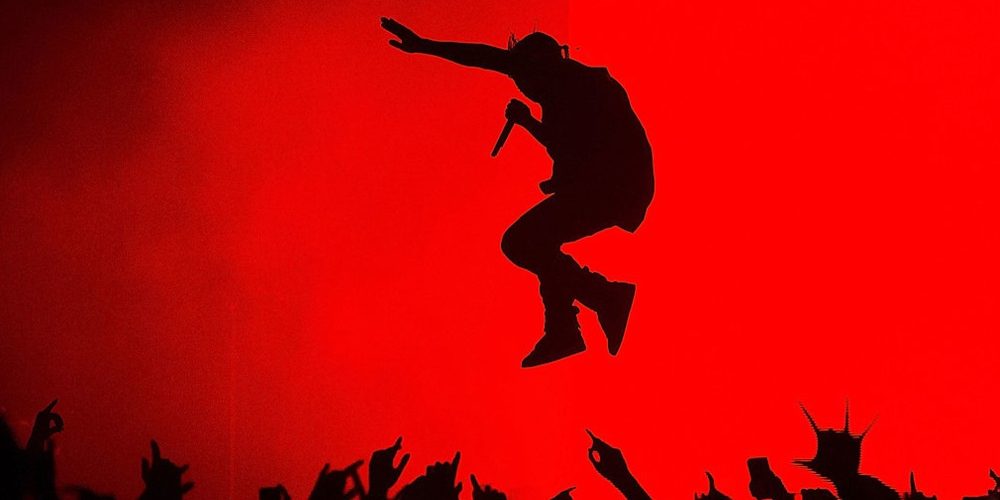New York senators to introduce new bill to limit use of rap lyrics as evidence in criminal trials
A pair of New York state senators are set to unveil new legislation this week that will make it harder for prosecutors to use rap lyrics as evidence in criminal trials.
According to Rolling Stone, Brad Hoylman (D-Manhattan) and Jamaal Bailey (D-The Bronx) are proposing a bill called ‘Rap Music On Trial’.
The purpose of this bill is to set a new high bar compelling prosecutors to show “clear and convincing evidence” that a defendant’s rap song, video, or other “creative expression” is “literal, rather than figurative or fictional”.
Hoylman argued that nobody thinks Johnny Cash actually “shot a man in Reno just to watch him die”, as depicted in the lyrics of ‘Folsom Prison Blues’, or that David Byrne is a real “psycho killer”, but that rappers have repeatedly had their lyrics used against them in criminal cases.
He said this practice is “chilling to artistic expression” and “reveals a bias in some instances that denigrates certain forms of expression, like rap music”, adding that “there’s a social justice component to this that meets the moment”.
Bailey added: “There’s a glaring double standard that often happens when it comes to artists of colour. There’s a lyric by Jay-Z that always speaks to me: ‘Scarface the movie did more than Scarface the rapper to me.’ It underlines the point that we don’t see this happening with movies. We don’t see this happening with other forms of creative expression. But we see it happening with hip-hop.”
One of the most recent examples of rap lyrics being used in a criminal trial to paint a defendant as culpable was when Drakeo The Ruler was charged with murder in 2016. The LA rapper was acquitted, but the DA’s office re-filed charges over the same incident, meaning Drakeo remained in jail, eventually accepting a plea deal on lesser charges and being released with time served – after three years in custody.
Prosecutors agreed from the start that Drakeo (real name Darrell Caldwell) wasn’t responsible but they used the lyrics from his 2016 track ‘Flex Freestyle’ (“I’m ridin’ around town with a tommy gun and a Jag/ And you can disregard the yelling, RJ tied up in the back“) to convince jurors that he had attended the party to target another rapper.
Drakeo’s lawyer, John Hamasaki, claimed that the prosecution was “essentially putting him on trial for a possible life sentence based on the theory his rap lyrics had demonstrated his intent to murder a guy. But somebody else completely unrelated was murdered. But maybe they were there at the same time. It was a really, really tenuous theory.”
He told Rolling Stone: “I have never seen rap lyrics used in such a convoluted and distorted way to try to [imply] guilt against somebody who they had little to no evidence committed the crime.
“The state was trying to convict an innocent man in such an outrageous way, based on really speculative evidence. The whole time I was like, ‘Why is this case even on trial?’ But they were gung-ho on pursuing it.”
Hoylman said that he and Bailey hoped to introduce the legislation this week. “I’d love to see it become law next session,” he said. “I’m hopeful we can get this moving and on the governor’s desk before June.”
Back in 2015, Killer Mike co-wrote an article about how rap lyrics were being distorted as evidence in court cases.
The Run The Jewels rapper – alongside author Erik Nielson – penned an op-ed regarding the conviction of No Limit rapper McKinley ‘Mac’ Phipps, who was sentenced to 30 years imprisonment for manslaughter after a fan was shot at his show. He was released from prison earlier this year.
Mike also suggested that his moniker is treated differently to white artists such as The Killers. “It only seems to apply in an unfavorable manner when you’re talking about a 6-foot-3 black guy,” he wrote. “And I think that has everything to do with the preconceptions and the prejudices and the bigotry that people bring to the table. It has little or nothing to do with my name.”
